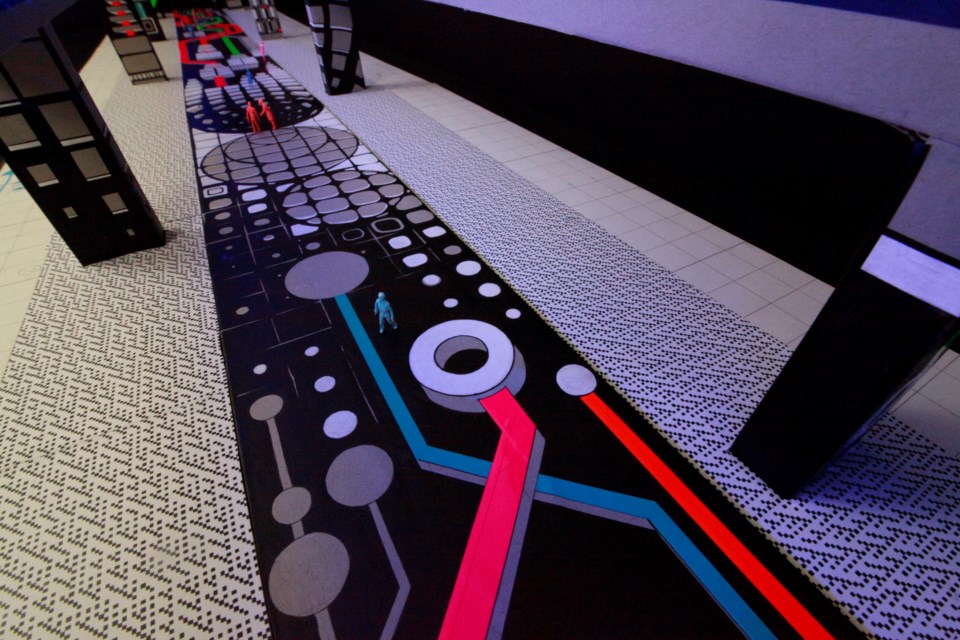One of the most ambitious art projects ever planned for Vancouver is a piece called Voxel Bridge.
The piece by New York's Jessica Angel (originally from Colombia) combines vinyl pieces in the physical world with an augmented reality component. The piece is part of the Vancouver Biennale; Sammi Wei, the organization's previous director of operations thinks Voxel Bridge may be unique in the world.
"This is very much groundbreaking, I don't think there's anything like this in public art right now," she tells Vancouver Is Awesome.
That's because of the augmented reality component, which includes 20 non-fungible tokens (NFTs).
"It's basically a whole other experience, a whole other reality in addition to the physical experience," Wei says.
The piece transforms the underside of Cambie Bridge at West 2nd Avenue, creating a cityscape that looks more like a circuit board.
"Most of my installations depict imaginary landscapes inspired in the micro-level of computers and its relationship to urbanism," says Angel on her website. "The way our cities are planned seem to correlate to the structure of a motherboard."
Voxel Bridge integrates lots of bright colours to help convey that concept.
"Because of the colours it also looks like if you had an infrared scan of a heat pipe," says Wei.
The physical design's connection to the digital world doesn't stop there.
"She wanted to use the bridge as an opportunity to tell the story of blockchain," Wei says.
She adds while Angel is an experienced artist, this is her first outdoor piece of this scale.
"She always uses these sorts of colours and vinyl is her favourite material to work with," Wei says.
In addition to the scale, the ambitious piece involves an augmented reality component where people will be able to find 20 digital objects which will be NFTs. They'll be using the Kusama network to do so. The NFTs will be sold using cryptocurrency and help fund the $300,000 project which has involved dozens of people.
"It's looking like 100 people; it's a huge effort behind this project and we've been working on it for close to two years," Wei says.
She adds that some contractors have accepted cryptocurrency as payment for working on the project.
Presenting blockchain and cryptocurrencies ideas in this way will help demystify the developing technology, Wei hopes.
With the additional digital components, she also hopes to be breaking new ground and allowing the art world to move into new areas of the digital world.
"With augmented reality, with all the layers of what we're doing, it's unique in the world," Wei adds.



